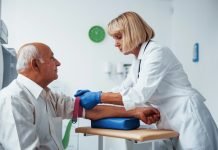
Social isolation, a significant form of psychosocial stress, may lead to reduced bone health, according to a study conducted on mice.
The research presented at the Endocrine Society’s annual meeting suggests that isolation can cause notable reductions in bone quality, including reduced bone mineral density, particularly in male mice.
Research Details
The research, led by Dr. Rebecca Mountain of the MaineHealth Institute for Research, was prompted by the growing public health concern of social isolation, particularly among older adults.
The COVID-19 pandemic has intensified this issue, leading to an increased prevalence of isolation and loneliness.
Existing clinical research had already shown that psychosocial stressors and subsequent mental health disorders pose significant risk factors for osteoporosis and fracture, especially in older adults.
However, the effects of social isolation on bone health have not been thoroughly examined.
In this new study, researchers exposed adult mice to either social isolation (one mouse per cage) or grouped housing (four mice per cage) over a period of four weeks.
They discovered that social isolation significantly reduced bone quality in male mice.
The impact on female mice was not clearly established, suggesting the need for further research to understand different mechanisms or time frames.
Implications and Further Research
The researchers plan to investigate further the effects of social isolation on bone health in human datasets and explore the mechanisms through which social isolation contributes to bone loss using mouse models.
These findings have critical clinical implications, particularly in the wake of the COVID-19 pandemic and the rise in social isolation it has caused.
Future research will be essential to understand how these findings translate to human populations.
While the study could not conclusively establish the impact of social isolation on bone health in female mice, the dramatic negative effect observed in male mice suggests a potential health concern.
The researchers stress the importance of addressing the issue of social isolation, especially in light of its long-term health impacts.
If you care about bone health, please read studies about vitamin K deficiency linked to hip fractures in old people, and these vitamins could help reduce bone fracture risk.
For more information about health, please see recent studies about natural coconut sugar that could help reduce blood pressure and artery stiffness, and an anti-inflammatory diet could help prevent fatty liver disease.
Copyright © 2023 Knowridge Science Report. All rights reserved.




